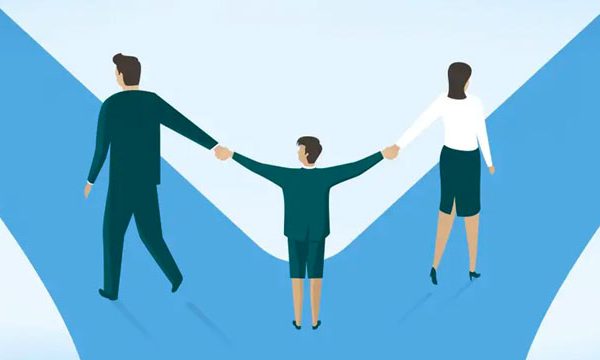Domestic Abuse Solicitors
“Amazing service from start to finish. Jennifer was brilliant, always kept me up to date with things I needed to know. Went above and beyond to help.”

Family Solicitors for Victims of Domestic Abuse
Our dedicated Domestic Abuse Solicitors are experts in helping victims of domestic violence and abuse. At this stage, we know from experience that you are going to be worried and confused, which is why you can count on us to treat you with dignity and respect as we learn more about you as an individual.
If you or your children have experienced domestic violence or abuse, then you should act straight away by calling the police and/or leaving the house. If it is safe to do so, you should stay with a relative or a friend while you figure things out.
Depending on your financial circumstances, you may be able to obtain legal aid for domestic abuse matters. Legal aid will cover the cost of our legal fees and pay for any disbursements incurred during your case.
Who is considered an abuser?
Domestic abuse can come in many forms but often involves violent behaviour and/or emotional abuse from an ‘associated person’. An associated person can be:
- Partner
- Spouse
- Parent of your children
- Someone you live with
- Relative
Under the Family Law Act 1996, our Domestic Abuse Solicitors can apply to the Courts for protection from your associated person with an injunction order. Depending on your circumstances, we can pursue the following Court orders:
Non-molestation Order
A non-molestation order prohibits an abuser from using or threatening physical violence, intimidating, harassing, pestering, or communicating with you. It also applies to the abuser instructing or encouraging others to do any of these actions.
A non-mol order typically prevents the abuser from coming within a certain distance of you, your home address and your place of work, depending on what the Judge decides. It can also include your children under certain circumstances.
A breach of a non-molestation order is a criminal offence, where the offender will be arrested if you call the police and tell them. This will begin criminal proceedings where the maximum sentence through the criminal Courts is five years’ imprisonment and a fine.
If, however you choose not to call the police, you can contact your Domestic Abuse Solicitors to begin civil proceedings, where the family court will order an arrest and/or punishment. The punishment under this route is imprisonment of up to two years, a suspended sentence, or fines.
Occupation Order
While a non-molestation order prevents further abuse and harassment, it does not deal with the issue of who will occupy the family home. In extension the non-mol order, an occupation order can be applied to circumstances where you and your abuser live together and may result in the abuser being ordered to vacate the property. The Courts will usually not allow these orders to be made without the abuser having had the opportunity to seek legal advice and attend Court.
It is also worth noting that the Courts do not make this order lightly for various reasons, typically where children are involved and depending on the housing needs of the abuser against the balance of harm caused to the victim. In most cases where physical violence is proven, the Courts are likely to issue an occupation order.
There are further orders that can be made, and our expert Domestic Abuse Solicitors will explore the options available to you based on your individual circumstances. We will always advise you on the necessary evidence required and the likely outcome of your case before proceeding.
In addition to the advice from our Domestic Abuse Solicitors, you may also find the following websites useful:
Legal Aid for Domestic Abuse
Leonard Solicitors is one of the few law firms in Southampton to hold a family law legal aid contract. As part of this contract, victims of domestic abuse and/or violence are entitled to legal aid, providing that they meet the financial requirements. Our Legal Aid Family Solicitors will explore legal aid with you upon your initial contact, but you can find out more about the legal aid requirements here.
FAQ’s
What are the signs of abuse?
Domestic abuse can take many forms and doesn’t always include violence. Abuse can range from psychological to more serious physical violence.
Typically, domestic abuse includes:
Domestic violence occurs when one partner harms the other with whom they are or have been in a relationship. This can be where one person physically attacks the other, but also it may be emotional, sexual or financial abuse. Additionally, children can be a victim of domestic abuse if they have witnessed violence between their parents. We strongly advise anyone who suffers domestic violence at the hand of their partners to contact the police.
Coercive controlling behaviour is a form of domestic abuse where a person humiliates, intimidates or threatens to punish or frighten the victim. For instance, the abuser will use this behaviour to isolate them from support networks and deprive them of independence.
Emotional abuse, or sometimes referred to as psychological abuse, can be hard to identify since it leaves no physical evidence upon the victim. This type of abuse happens when a person controls their partner in what they say, do and wear, or threatening, humiliating or ignoring the victim. Emotional abuse can also happen when a person makes the victim feel worthless.
Victims of gaslighting are subject to psychological abuse where they are presented with false information to encourage them to doubt their memory or perception. Manipulation, denial, contradicting and lying about the victim’s circumstances are typical characteristics of gaslighting.
What can I do to stop an abuser?
Once we get to know you, your circumstances and what it is that you want to achieve going forward, we will build your case to submit to the Courts. As mentioned above, there are various Court orders that can be issued to the abuser, so that contact and harassment can come to an end.
The best thing that you can do is to be strong in your will, continue to receive help and support from a domestic abuse charity or organisation, and let us do the rest for you.
If, however you choose not to call the police, you can contact your Domestic Abuse Solicitors to begin civil proceedings, where the family court will order an arrest and/or punishment. The punishment under this route is imprisonment of up to two years, a suspended sentence, or fines.
Occupation Order
While a non-molestation order prevents further abuse and harassment, it does not deal with the issue of who will occupy the family home. In extension the non-mol order, an occupation order can be applied to circumstances where you and your abuser live together and may result in the abuser being ordered to vacate the property. The Courts will usually not allow these orders to be made without the abuser having had the opportunity to seek legal advice and attend Court.
It is also worth noting that the Courts do not make this order lightly for various reasons, typically where children are involved and depending on the housing needs of the abuser against the balance of harm caused to the victim. In most cases where physical violence is proven, the Courts are likely to issue an occupation order.
There are further orders that can be made, and our expert Domestic Abuse Solicitors will explore the options available to you based on your individual circumstances. We will always advise you on the necessary evidence required and the likely outcome of your case before proceeding.
In addition to the advice from our Domestic Abuse Solicitors, you may also find the following websites useful:
Legal Aid for Domestic Abuse
Leonard Solicitors is one of the few law firms in Southampton to hold a family law legal aid contract. As part of this contract, victims of domestic abuse and/or violence are entitled to legal aid, providing that they meet the financial requirements. Our Legal Aid Family Solicitors will explore legal aid with you upon your initial contact, but you can find out more about the legal aid requirements here.
FAQ’s
What are the signs of abuse?
Domestic abuse can take many forms and doesn’t always include violence. Abuse can range from psychological to more serious physical violence.
Typically, domestic abuse includes:
Domestic violence occurs when one partner harms the other with whom they are or have been in a relationship. This can be where one person physically attacks the other, but also it may be emotional, sexual or financial abuse. Additionally, children can be a victim of domestic abuse if they have witnessed violence between their parents. We strongly advise anyone who suffers domestic violence at the hand of their partners to contact the police.
Coercive controlling behaviour is a form of domestic abuse where a person humiliates, intimidates or threatens to punish or frighten the victim. For instance, the abuser will use this behaviour to isolate them from support networks and deprive them of independence.
Emotional abuse, or sometimes referred to as psychological abuse, can be hard to identify since it leaves no physical evidence upon the victim. This type of abuse happens when a person controls their partner in what they say, do and wear, or threatening, humiliating or ignoring the victim. Emotional abuse can also happen when a person makes the victim feel worthless.
Victims of gaslighting are subject to psychological abuse where they are presented with false information to encourage them to doubt their memory or perception. Manipulation, denial, contradicting and lying about the victim’s circumstances are typical characteristics of gaslighting.
What can I do to stop an abuser?
Once we get to know you, your circumstances and what it is that you want to achieve going forward, we will build your case to submit to the Courts. As mentioned above, there are various Court orders that can be issued to the abuser, so that contact and harassment can come to an end.
The best thing that you can do is to be strong in your will, continue to receive help and support from a domestic abuse charity or organisation, and let us do the rest for you.













